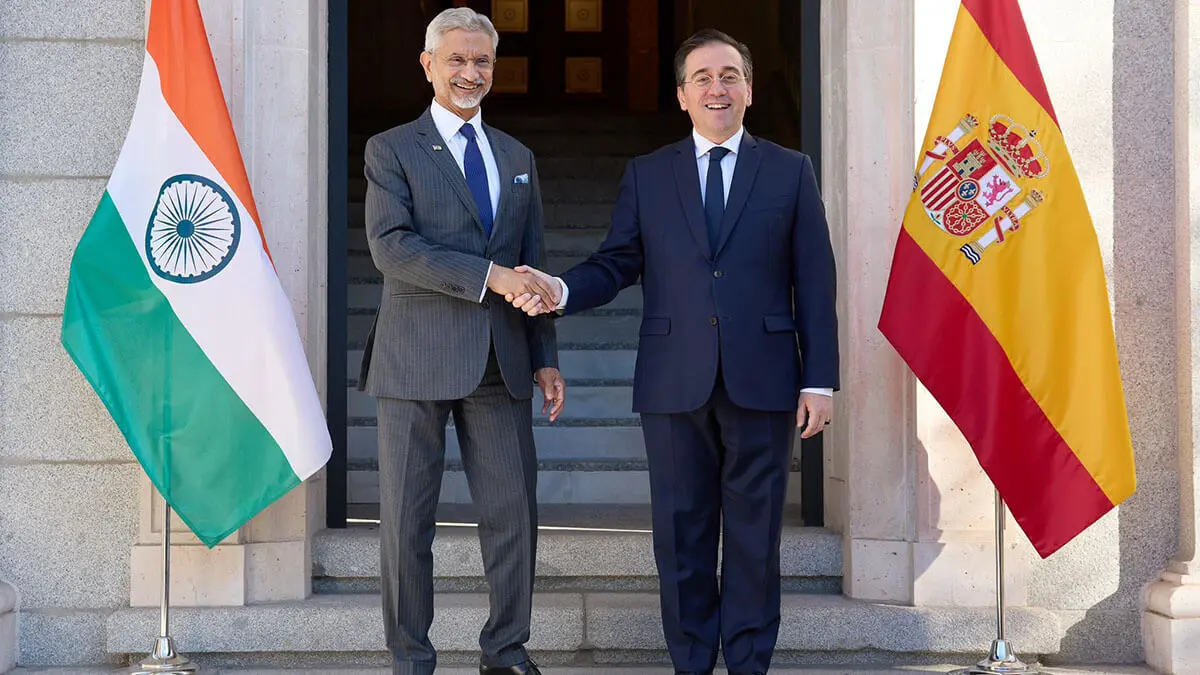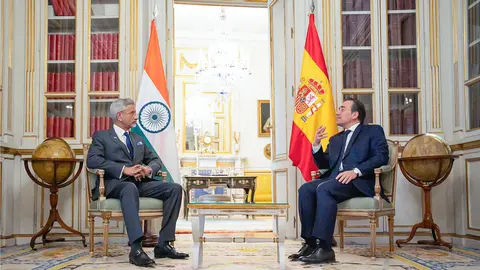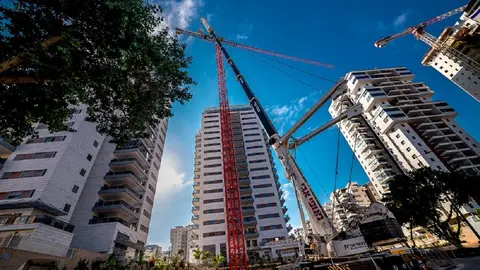India-Spain relations on an upward trajectory

During this visit he held talks with his Spanish counterpart José Manuel Albares and addressed the 9th Annual Conference of Spanish Ambassadors.
Coming close on the heels of Spain’s President of the Government Pedro Sánchez’s visit to India in October last year, Dr. Jaishankar’s visit to Spain builds upon the momentum that India-Spain relations has been gaining since the past few years. The recent accelerated engagements between India and Spain could be analysed from three perspectives.
First is the intent of both the countries to expand their respective outreach. During his meeting with Albares, Dr. Jaishankar stated that stronger relations with Spain enables India to expand its footprint across Europe. Although India has strong ties with the European Union (EU), within the EU India does not have equal ties with all the countries.
India enjoys strong relations with France, Italy and Germany. India’s ties with other members of the EU including Spain are still in an emerging stage. Closer ties with Spain, one of the prominent members of the EU, certainly boost India’s engagements with the EU as well. Similarly greater engagements with Spain enhance India’s interaction with the Mediterranean, a region which has received less focus in India’s foreign policy.
For its part, India facilitates Spain to get a wider exposure to the Indo-Pacific Region. While primarily focusing mainly on Europe, North Africa and Latin America, Spain is now looking to expand its outreach beyond these traditional areas. To this end, India is emerging as a principal partner for Spain to consolidate its ties beyond the traditional sphere of foreign policy.
Second is the diversification of ties. Despite the bilateral relations being almost dormant for major part of the past seven decades, India and Spain have taken rapid steps to strengthen their ties in past few years. Strong relations are built on diversification. The C295 military aircraft project is a major shot in the arm for India and Spain. This project allows India to diversify its defence procurements and also promote the Make in India policy. For Spain, defence cooperation with India leads to diversification of its defence export destinations.
During his visit Dr. Jaishankar and Albares discussed cooperation in a wide ranging areas like defence, security, investments, green hydrogen and climate change. The two countries also signed cooperation agreements in the areas of sports and sustainable urban development. This is an important step as India would benefit from Spain’s expertise in these two fields.
Spain is a powerhouse of various sports, particularly football, tennis and hockey. While performing reasonably well in tennis and hockey, India could benefit from Spain’s expertise in football. Already Spanish football enjoys immense popularity in India. Indians keenly follow the Spain National Football Team as well as clubs like Real Madrid and FC Barcelona. A number of Spanish players and coaches are associated with various teams competing in the Indian Super League, a domestic football tournament in India.
Similarly, Spain’s expertise in sustainable urban development would benefit India. As it witnesses rapid urbanization, India would look to cooperate with Spain to develop urban centres that are sustainable and planned in a manner that provide space for equitable growth. As India’s economy continues to grow, it is pertinent that the growth is equally distributed and not concentrated to a few urban centres. Development of new sustainable cities would lead to a balanced economic development of different regions in India and it would also solve the issue of over congestion in select cities.
Third is the potential for India and Spain collaborate on the issues facing the world. The two countries share commitment to multilateralism and a robust institutional mechanism. Further the two countries are among the top 15 economies in the world. It implies that both have leverage in global affairs. With a GDP of $4.27 trillion India is the fifth largest economy while Spain, with a GDP of $1.83 trillion is the 14th largest economy. With a 6.5% GDP growth rate, India is among the fastest growing economies in the world. For its part, Spain is currently the fastest growing economy in the Eurozone. In 2024, Spain’s economy grew by 2.7%. Spain’s GDP growth rate this year is expected to be 2.4% and 2.2% in 2026. Spain’s economic growth rate is more than France and Germany, considered as economic powerhouses of the EU. With this leverage on their side, India and Spain are in a position to contribute to the efforts to end the two wars going on in Europe and in the Middle East. Ending of these conflicts would only further strengthen India-Spain relations as both the countries could explore the possibility of connectivity initiatives through the India-Middle East-Europe Economic Corridor. This corridor gives the two countries access to each other’s regions.
India and Spain relations are still in an emerging stage. There is a lot of potential for the bilateral ties to develop. However, the recent acceleration in engagements between India and Spain indicate that the ties are on the upward trajectory.



